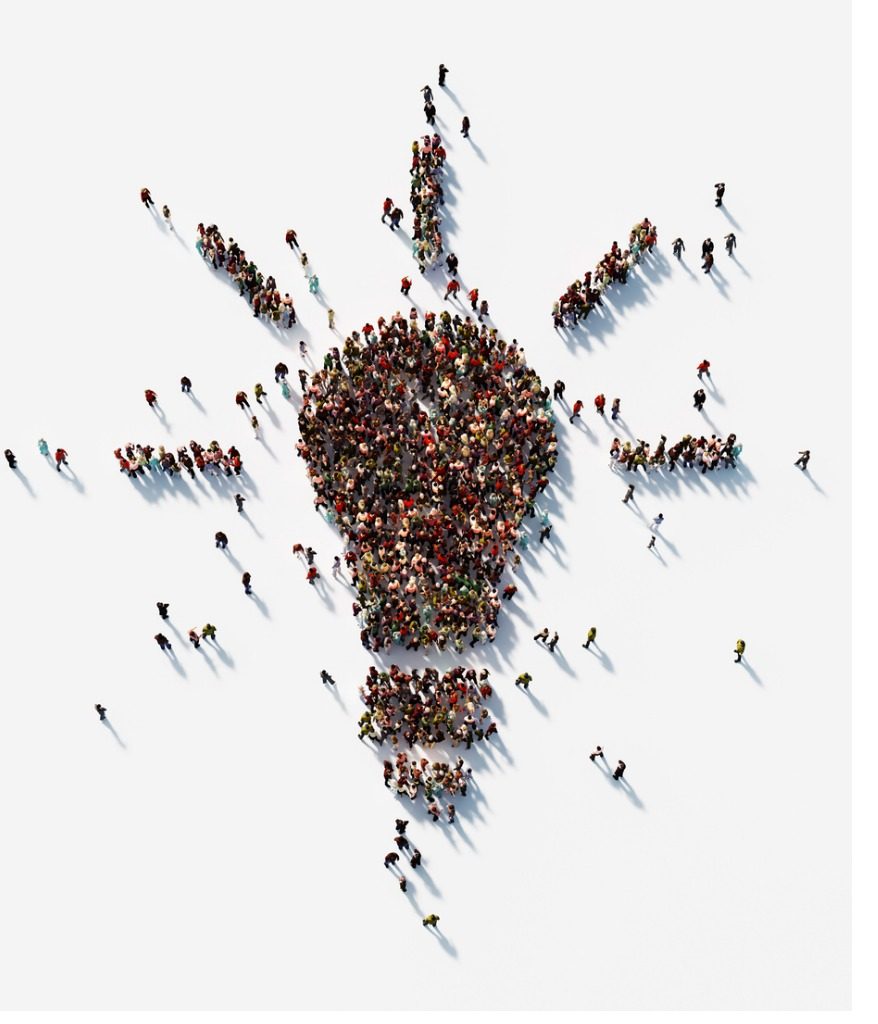
Over the past few years I have come to realize that change in our personal and professional worlds requires collaboration in order to survive and thrive!
Here’s how I define collaboration: “The action of working with someone to produce something.”
Working with someone … By its very definition, collaboration hinges on relationships.
Personally, I have come to realize that everything changes all the time. As I experience change in my life, my first reaction is usually denial. “No way, this can’t be happening yet,” is one of my common responses. It seems that lately, I cannot hear as well, or see as well, or keep up with the onslaught of information coming my way. Then there are changes with relationships and family dynamics, kids going to HS, or college…then they get married, have kids, they get divorced and so on. Sometimes there are happy changes and some changes are not so happy, but all of it requires adjustment and hinges on our relationships!
In business, changes come fast and furious, and require a high degree of collaboration built on strong relationships. Those relationships can create a sense of security and a foundation for effective dialogue on how to best engage change and drive great outcomes as a result.
Trust is the foundation of strong relationships. Trust is also one of the easiest things to lose in a relationship. So, you have to work hard to build it and work hard to keep it! Trust also allows for interdependence. Interdependency is not codependency, it is a healthy dependence on each other.
Today if your collaboration group is nonexistent or not effective then evaluate developing your Relational Quotient rather than picking a good cloud based collaboration app for everyone to use or coming up with team names, making a chart of what needs to be accomplished, or asking people to prepare and present information. Those soft skills that build up your team relationships are the essential building blocks of collaboration-ready relationships that will take your organization toward greater outcomes.
Here are a few essentials to consider in improving the relational quotient for you and your team:
- Self-awareness. This can help you realize when you need to build up trust. You can improve self-awareness not only by reflecting on yourself and what’s happening with you but also by asking people for feedback and encouraging open communication.
- Inquisitiveness. We’ve all heard the term “lifetime learner.” Try applying that term to your relationships. Collaboration is all about curiosity. Being interested in other people, where they are coming from and their ideas, fosters collaboration. Work on enhancing your skills around curiosity and being a learner because that will enhance collaboration.
- Humility. This is more like a trait than a skill but if you can come from a place of humility you are much better prepared to collaborate with your team, to listen to their input and to innovate. You can develop humility by admitting mistakes, by self-reflecting aloud and obviously, by listening to others. There is room for people to work on humility even if it doesn’t come naturally to them. One of the great lines I’ve heard in my life is, “You don’t know what you don’t know.” That awareness can help you develop your humility skill set.
- Work across boundaries. Learn about the people on your team, their environments, how they think and operate and be able to consider the boundaries as opportunities to produce greater collaboration. That can be a really hard thing for people to grasp, because of our own implicit biases.
- Reliability. Reliability fundamentally repairs trust and interdependence, just as a lack of it weakens trust. You have to show up continuously to be there for your teammates. It doesn’t mean you have to deliver, but you do need to show up and admit what you are delivering or not. It could mean simply showing up and admitting you don’t have the thing you committed to.
How do you get started? Engage the relational components of collaboration by focusing on and being intentional about your own skills in the above five areas and also encouraging the development of those members of your team.
Yasser Youssef is the president of The Budd Group, one of the leading facility service companies in the country a North Carolina-based company that provides facility support services in the Southeast. Throughout his career, Youssef has met leaders from all backgrounds, and believes leadership is for everyone. Over the past few years, he has developed an affinity for writing and contributing thought leadership, and is often asked to speak to businesses throughout the country about authentic leadership.
Want to continue the conversation? Subscribe to Yasser Youssef’s blog or contact him to talk about speaking engagements.